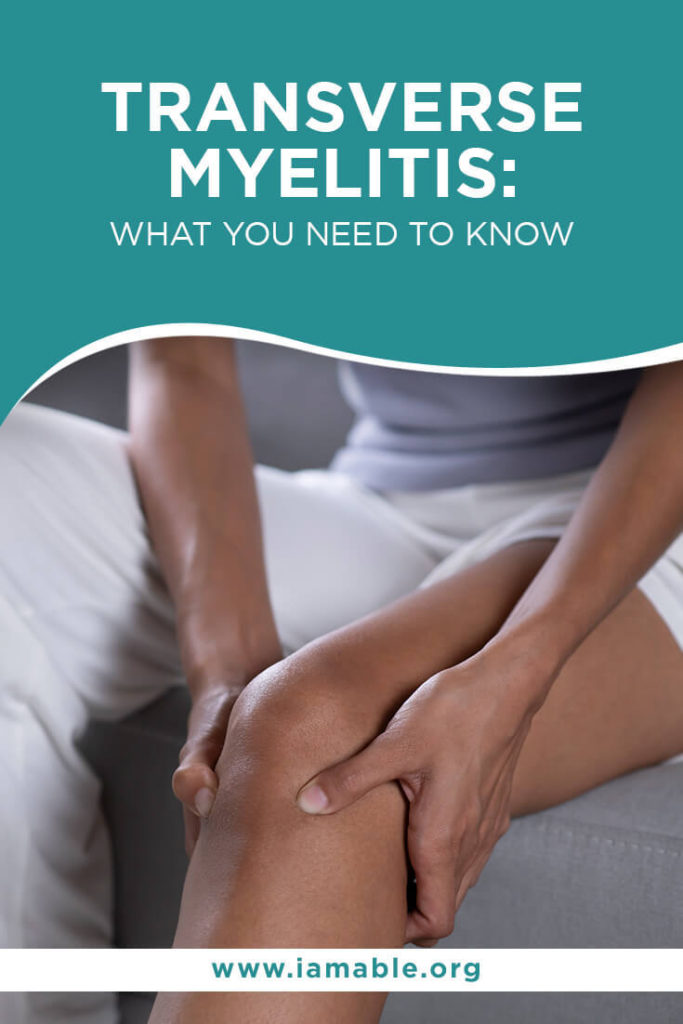Miami, FL 33186

Imagine being told you have a long-term, chronic illness with no known cure. Unfortunately, that is the reality for many transverse myelitis patients and survivors who seek the help of our neurological recovery center in Miami.
Transverse myelitis (TM) is a relatively rare neurological disorder that causes inflammation and damage to the spinal cord. Symptoms of TM can vary from person to person but can include muscle weakness, sensory loss, paralysis, and bladder and bowel dysfunction. Currently, doctors note that there isn’t a cure for transverse myelitis, but treatment options are available to help alleviate the discomfort from the symptoms and to improve quality of life.
This rare disease can be severe and life-altering. If you or someone you know has transverse myelitis, it can be beneficial to get acquainted with the condition. Learning as much as possible about the condition may come in handy when making informed decisions about the rehabilitation and patient care plan.
As a trusted neurological recovery center in Miami, we at iAM ABLE hope to provide more information on transverse myelitis. We encourage you to read on to understand your diagnosis better and feel more confident in managing your current health challenges.
Studies note that this neurological condition has four classic symptoms:
Patients have shared experiences where they stumble, drag one foot, or their legs feel heavier than usual. Strength and muscle coordination in the hands and arms may also be affected.
Some patients report that they experience numbness, tingling, coldness, or burning sensations. Most also experience increased sensitivity to touch, making wearing clothes or a light touch with a finger feel extremely and unusually painful.
A majority of the patients experience pain linked to their TM diagnosis. You can either feel pain in the back or experience bouts of sharp and shooting pain radiating down the legs, arms, or around the torso. For others, there is a loss of the ability to experience pain or temperature sensitivity. These are some of the expected sensory changes a TM patient will experience.
Some patients experience bowel and bladder dysfunction as the first symptom of their transverse myelitis condition. You may experience increased frequency and urge to urinate or defecate and some instances of incontinence, difficulty voiding, constipation, or feeling of incomplete bowel evacuation. If you’re at risk for TM, watch out for these signs.
This condition, although rare, can happen at any age, history, gender, or race. Experts have seen TM cases in children between 10-19 years of age and adults from 30-39 years old. However, the majority of the cause of TM cases remain unknown. It does not seem genetic or runs in families, but some researchers link this condition to autoimmune disorders.
iAM ABLE, a trusted neurological recovery center in Miami, has recovery programs to help TM survivors, particularly those facing paralysis issues. These programs are available for both children and adults.
The causes of some TM cases are unknown. Still, for others, viral, bacterial, or fungal infections can end up affecting the spinal cord, eventually leading to the development of transverse myelitis. Below is a quick list of the usual triggers of TM according to doctors and researchers:
Some people living with transverse myelitis experience neurological deficits such as incontinence, chronic pain, severe weakness, stiffness of muscle, and paralysis during the time that they feel ill. Unfortunately, such neurological manifestations may be permanent and require months or years of rehabilitation therapy to retrain the muscles and regain control.
As your go-to neurological recovery center in Miami, you can rely on us to help you recover from your current health condition and teach you actionable tips to live a quality life even when you have paralysis.
Rehabilitation and gait training can significantly aid in managing symptoms and retraining your body to achieve maximum recovery potential. To ensure your efforts are efficient and targeted to achieve your goals, we encourage you to work with an established neurological recovery center in Miami like iAM ABLE. This way, we can prioritize your rehabilitation goals and identify key points to improve in your current fitness routine.
Over the years, we at iAM ABLE have been helping patients overcome disabilities and paralysis with the help of customized rehabilitation programs that are focused on filling the gap between traditional therapy and our patient’s maximum potential.
With proper physical therapy, rehabilitation, and gait training using our state-of-the-art equipment and personalized routine, we will help you retrain your muscle strength and flexibility.
The goal is to improve your coordination, reduce muscle stiffness, regain better control over your bladder and bowel function, increase the range of your joint movements, and gain overall strength. We will do our best to help you transition back to your independence and live the best quality of life you deserve.
We encourage you to contact us at iAM ABLE to learn more about our approach to helping patients living with paralyzing conditions like transverse myelitis. Additionally, we recommend grabbing a copy of our comprehensive guide to thriving with paralysis.
Grab our free e-book 7 Unbelievably Important Steps to Take to THRIVE after Paralysis by clicking the image below.
